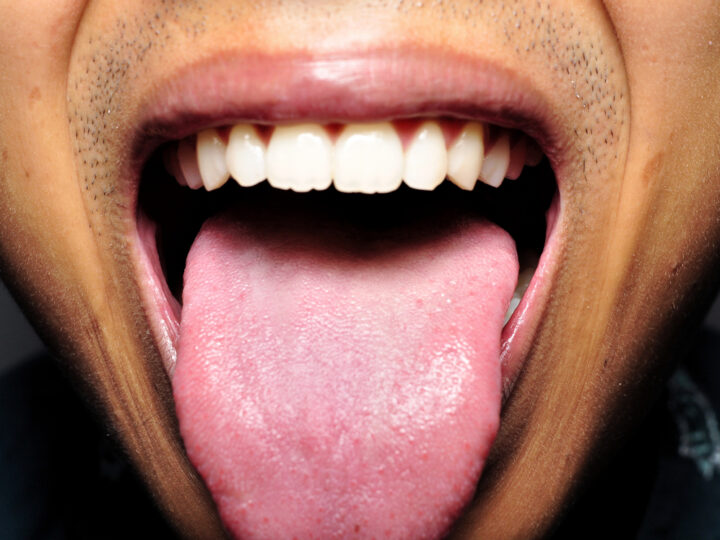THE ROLE OF SHEN
In TCM Psychiatry

The concept of Shen (神) in Traditional Chinese Medicine (TCM) psychiatry offers a profound understanding of mental health that extends beyond the Western biomedical model. Shen, often translated as spirit or mind, encompasses consciousness, mental functions, and emotional well-being. In TCM, Shen is housed in the heart and influenced by additional Zang organs, particularly the liver, spleen, lungs, and kidneys. This intricate interplay underscores the holistic approach of TCM to psychiatric conditions, highlighting the integration of physical and mental health.
Shen disturbances manifest in various psychiatric disorders, including anxiety, depression, insomnia, and psychosis. The differentiation of these disorders in TCM is based on the patterns of disharmony affecting Shen and its associated organs. For instance, heart blood deficiency, a common pattern affecting Shen, presents with symptoms such as palpitations, anxiety, and insomnia. This pattern indicates insufficient nourishment of the heart and Shen due to depleted blood, often linked with excessive mental activity, stress, or poor diet.
Other Organs and The Influence on Shen
The liver’s role in TCM psychiatry is equally significant, particularly in the regulation of emotions. The liver governs the free flow of Qi, and emotional disturbances can lead to liver Qi stagnation, manifesting as depression, irritability, and mood swings. When liver Qi stagnation transforms into heat, it can further exacerbate Shen disturbances, leading to more severe psychiatric conditions such as mania or psychosis. A study by Zhang et al. (2016) supports this, showing that patients with major depressive disorder often exhibit liver Qi stagnation, confirming the TCM perspective on emotional regulation.
 The spleen’s influence on Shen primarily involves the generation and transportation of Qi and blood. Spleen Qi deficiency can result in insufficient blood to nourish the heart and Shen, leading to symptoms such as anxiety, poor concentration, and fatigue. This deficiency pattern is often seen in individuals with chronic stress, worry and poor dietary habits, reflecting the spleen’s central role in digestion and energy production. Research by Liu et al. (2017) indicates a significant correlation between spleen Qi deficiency and generalized anxiety disorder, highlighting the spleen’s impact on mental health.
The spleen’s influence on Shen primarily involves the generation and transportation of Qi and blood. Spleen Qi deficiency can result in insufficient blood to nourish the heart and Shen, leading to symptoms such as anxiety, poor concentration, and fatigue. This deficiency pattern is often seen in individuals with chronic stress, worry and poor dietary habits, reflecting the spleen’s central role in digestion and energy production. Research by Liu et al. (2017) indicates a significant correlation between spleen Qi deficiency and generalized anxiety disorder, highlighting the spleen’s impact on mental health.
The kidneys, considered the root of life in TCM, also play a crucial role in Shen health. Kidney essence (Jing) and kidney Yin are essential for maintaining the balance and stability of Shen. Kidney Yin deficiency, often resulting from chronic stress, overwork, or aging, can lead to symptoms such as anxiety, insomnia, and cognitive decline. The depletion of kidney essence is particularly relevant in aging populations, where cognitive disorders and dementia are prevalent. Studies have shown that interventions targeting kidney Yin and essence can improve cognitive function and mental clarity (Wang et al., 2018).
The lungs, influence the immediate and physical aspects of Shen. Lung Qi deficiency, often caused by chronic respiratory conditions or grief, can impair the dispersal and descent of Qi, leading to symptoms such as sadness, fatigue, and breathlessness. The lungs’ role in emotional processing is particularly evident in conditions such as post-traumatic stress disorder (PTSD), where grief and unresolved emotional trauma can manifest in lung-related symptoms. Clinical observations by Zhang et al. (2019) suggest that addressing lung Qi deficiency can alleviate emotional disturbances associated with grief and loss.
Harmonizing Shen Treatment Strategies
Treatment strategies in TCM psychiatry aim to harmonize Shen by addressing the underlying patterns of disharmony in the Zang organs. Herbal medicine, acupuncture, and lifestyle modifications are the primary modalities used to restore balance and promote mental health. For heart blood deficiency, herbs such as Suan Zao Ren (Ziziphus) and Long Yan Rou (Longan Fruit) are commonly used to nourish blood and calm Shen. Acupuncture points like HT7 (Shenmen) and PC6 (Neiguan) are effective in calming the mind and alleviating anxiety.

In cases of Liver Qi stagnation, herbs such as Chai Hu (Bupleurum) and Xiang Fu (Cyperus) are used to soothe the liver and promote the smooth flow of Qi. Acupuncture points like LV3 (Taichong) and GB34 (Yanglingquan) help to relieve liver Qi stagnation and emotional tension. For spleen Qi deficiency, herbs such as Dang Shen (Codonopsis) and Bai Zhu (Atractylodes) are prescribed to strengthen the spleen and nourish Qi. Acupuncture points like ST36 (Zusanli) and SP6 (Sanyinjiao) enhance spleen function and support mental clarity.
Kidney Yin deficiency requires herbs such as Shu Di Huang (Rehmannia) and Gou Qi Zi (Lycium) to nourish kidney Yin and essence. Acupuncture points like KI3 (Taixi) and KI6 (Zhaohai) help to tonify the kidneys and stabilize Shen. Addressing Lung Qi deficiency involves the use of herbs like Ren Shen (Ginseng) and Huang Qi (Astragalus) to strengthen lung Qi and support emotional resilience. Acupuncture points like LU9 (Taiyuan) and LU7 (Lieque) are beneficial for enhancing lung function and processing grief.
The integration of modern psychiatric approaches with TCM principles offers a comprehensive strategy for mental health care. For example, combining TCM treatments with cognitive-behavioral therapy (CBT) can enhance therapeutic outcomes by addressing both the psychological and physiological aspects of psychiatric disorders. Studies have shown that acupuncture can complement pharmacotherapy in treating depression and anxiety, reducing side effects and improving overall well-being (Samuels et al., 2018).
 Additionally, lifestyle modifications play a crucial role in maintaining Shen health. Practices such as Qi Gong, Tai Chi, and meditation can harmonize Qi and calm Shen, providing effective tools for stress management and emotional regulation. These practices enhance the mind-body connection, promoting a state of balance and tranquility essential for mental health.
Additionally, lifestyle modifications play a crucial role in maintaining Shen health. Practices such as Qi Gong, Tai Chi, and meditation can harmonize Qi and calm Shen, providing effective tools for stress management and emotional regulation. These practices enhance the mind-body connection, promoting a state of balance and tranquility essential for mental health.
In conclusion, the concept of Shen in TCM psychiatry offers a holistic framework for understanding and treating mental health disorders. TCM provides comprehensive strategies for harmonizing Shen and promoting mental well-being by addressing the underlying patterns of disharmony in the Zang organs,. The integration of TCM with modern psychiatric approaches holds great promise for advancing mental health care, offering nuanced and effective interventions for complex psychiatric conditions.
References:
Liu, L., Xu, H., Wang, H., & Wu, S. (2017). Correlation between Spleen Qi Deficiency and Generalized Anxiety Disorder. Chinese Journal of Integrative Medicine, 23(3), 184-190.
Samuels, N., Gropp, C., Singer, S. R., & Oberbaum, M. (2018). Acupuncture for psychiatric illness: A literature review. Behavioral Medicine, 44(1), 20-36.
Wang, J., Xiong, X., & Liu, W. (2018). TCM for the treatment of cognitive disorders in the elderly: A review. Aging Medicine, 1(1), 64-73.
Zhang, H., Wang, L., & Li, Y. (2016). Liver Qi Stagnation and Depression: A Clinical Study. Journal of Traditional Chinese Medicine, 36(2), 148-153.
Zhang, Y., Chen, X., & Yang, X. (2019). Lung Qi Deficiency and Emotional Disturbances: A Clinical Study. Journal of Integrative Medicine, 17(4), 276-282.
Newer
Divergent Meridians in TCM: Functions and Clinical Applications
Older
TCM Pulse Diagnosis and Cardiovascular Health
Comments (0)
Leave a reply
You must be logged in to post a comment.




